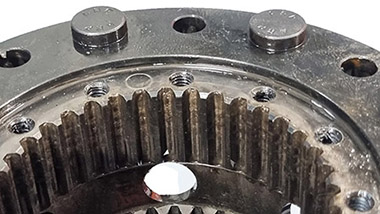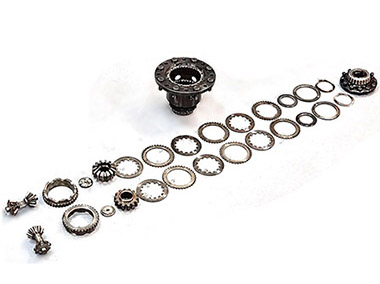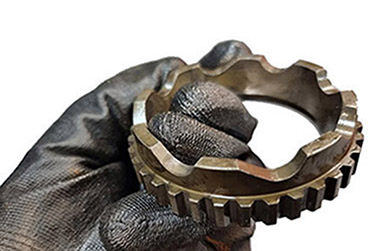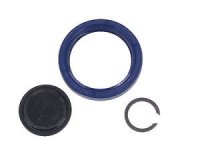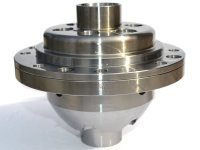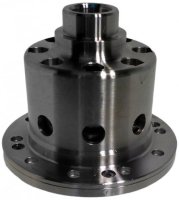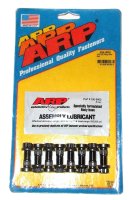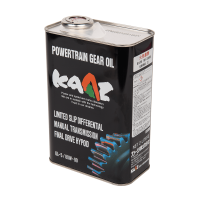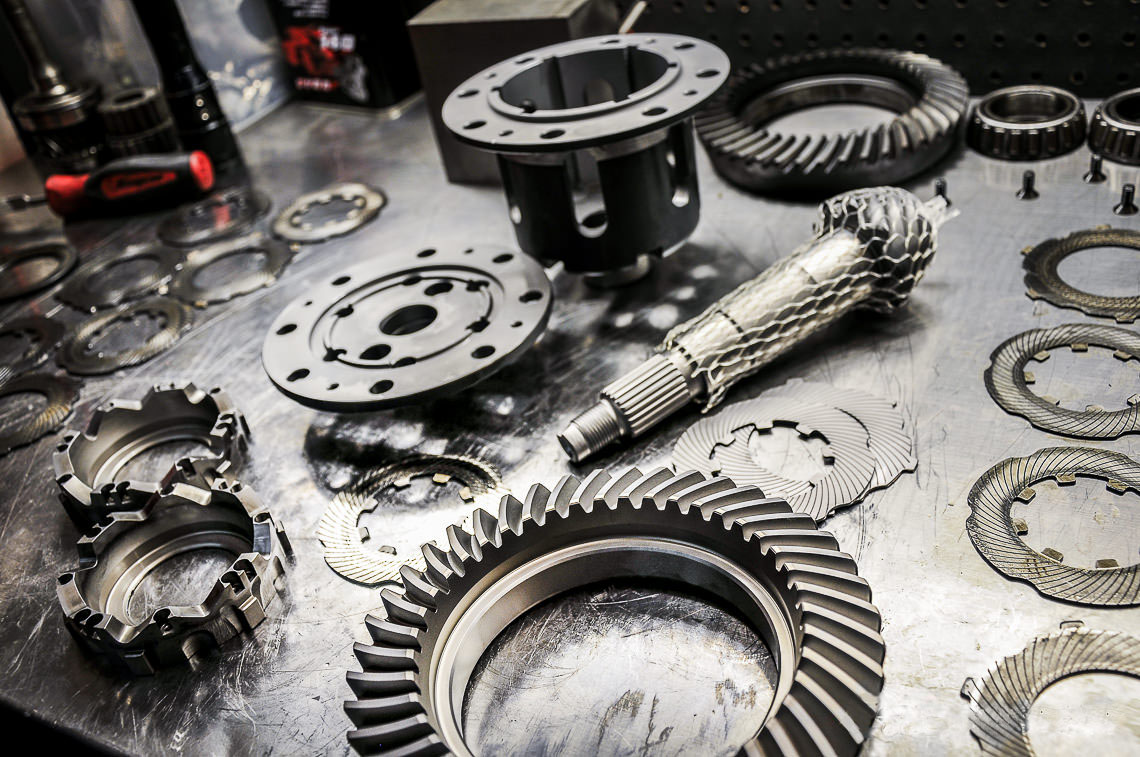 |
|
Would a rally team be doing its job without a full selection of differentials to choose from? We don?t think so! Limited slip diffs are a critical part of any competition vehicle. Each type has a different set of benefits and compromises.
 Open Differential: The factory supplies this cost-effective solution which works fine so long as heavy throttle is not applied. The problem is that when one of the wheels slips, the drivetrain is not able to provide power to the other wheel. Basically, if one of the wheels starts to spin any additional power travels through the path of least resistance. That is always the spinning wheel. So, applying power produces no increase in acceleration. Open diffs are not useful in any motorsports.
Open Differential: The factory supplies this cost-effective solution which works fine so long as heavy throttle is not applied. The problem is that when one of the wheels slips, the drivetrain is not able to provide power to the other wheel. Basically, if one of the wheels starts to spin any additional power travels through the path of least resistance. That is always the spinning wheel. So, applying power produces no increase in acceleration. Open diffs are not useful in any motorsports.
 Clutch-Type Differential: Lockup is proportionate to the power applied. The unit can be by varying clutch ramp angles or by varying the number of active clutch surfaces. This is the most tunable of limited slip differentials. Periodic maintenance is required due to clutch plate wear. Street driveability is not as good as that from torque biasing designs (TBD). However, this is typically the best solution for loose surface rally and road racing. Here's a fine writeup.
Clutch-Type Differential: Lockup is proportionate to the power applied. The unit can be by varying clutch ramp angles or by varying the number of active clutch surfaces. This is the most tunable of limited slip differentials. Periodic maintenance is required due to clutch plate wear. Street driveability is not as good as that from torque biasing designs (TBD). However, this is typically the best solution for loose surface rally and road racing. Here's a fine writeup.
 Torque Biasing Differential: The TBD usually behaves as an open differential, only coming into play as a limited slip diff when a loss of traction is experienced, as on turn exit with the power on. The TBD will automatically change from a 50/50 split to biasing the split towards the tire with the greater grip. Most Peloquins-brand differentials have a maximum torque bias of 20/80, meaning that up to 80% of the applied torque can be biased to the tire with grip. The bias is continuously variable from 50/50 to 80/20 in proportion to grip loss. The TBD differential provides the least amount of understeer of any limited slip differential and is the best choice for the street, tarmac rally, and autocross.
Torque Biasing Differential: The TBD usually behaves as an open differential, only coming into play as a limited slip diff when a loss of traction is experienced, as on turn exit with the power on. The TBD will automatically change from a 50/50 split to biasing the split towards the tire with the greater grip. Most Peloquins-brand differentials have a maximum torque bias of 20/80, meaning that up to 80% of the applied torque can be biased to the tire with grip. The bias is continuously variable from 50/50 to 80/20 in proportion to grip loss. The TBD differential provides the least amount of understeer of any limited slip differential and is the best choice for the street, tarmac rally, and autocross.
 Spool (or Welded Diff): These are not differentials at all as the left and right axles are completely tied together. Spools are brutally effective on snow/ice and in single-purpose drag race cars with extreme power. Road race cars may also do well with them so long as suspension is tuned appropriately. They're the worst possible street solution causing extreme understeer and dangerous drivetrain binding. In the right element, however, spools are UNBEATABLE.
Spool (or Welded Diff): These are not differentials at all as the left and right axles are completely tied together. Spools are brutally effective on snow/ice and in single-purpose drag race cars with extreme power. Road race cars may also do well with them so long as suspension is tuned appropriately. They're the worst possible street solution causing extreme understeer and dangerous drivetrain binding. In the right element, however, spools are UNBEATABLE.


